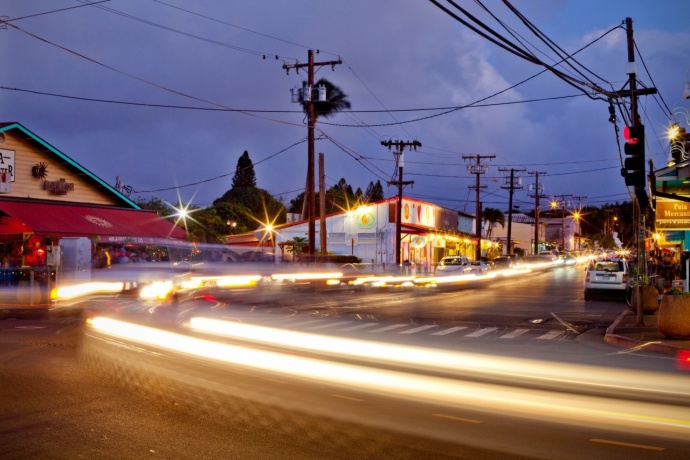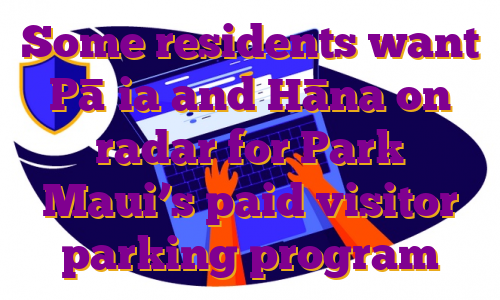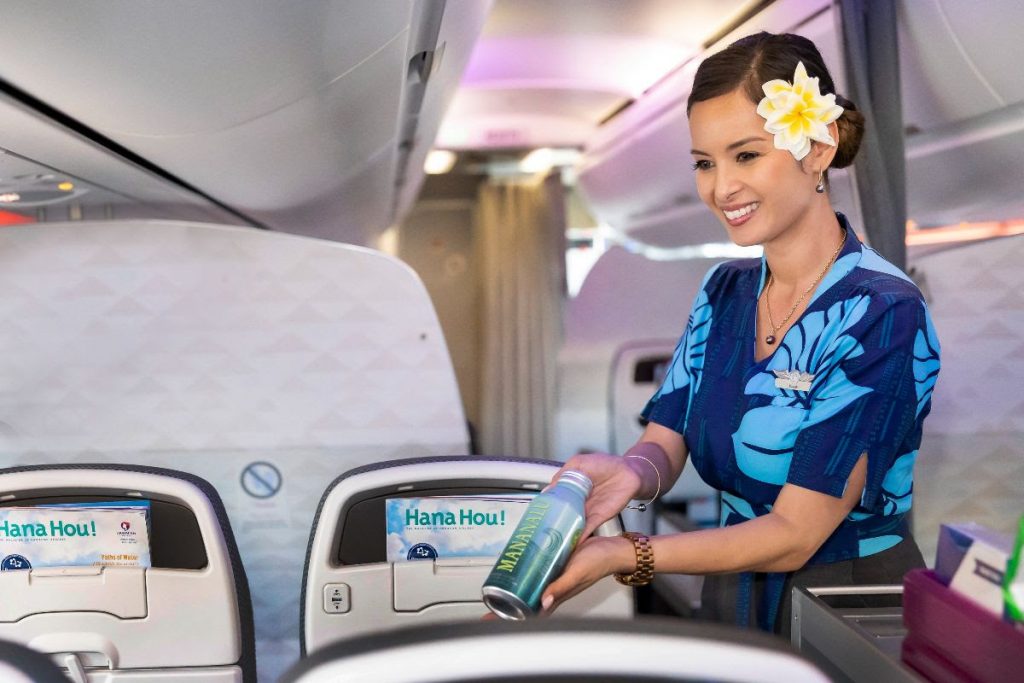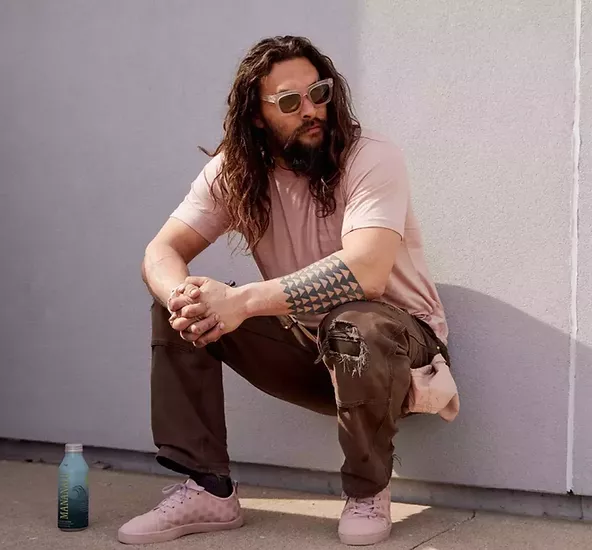 Pāʻia Street-scape. Photo courtesy Pāʻia Town Association.
Pāʻia Street-scape. Photo courtesy Pāʻia Town Association.
As Park Maui gears up to launch in South and Central Maui, some residents asked that the project accelerate help for congested Hāna and Pāʻia.
Park Maui, a new Maui County parking management program, plans to charge visitors to park in some of Maui’s most trafficked areas. The county set aside $3.8 million for the program in its latest budget, and the plan is anticipated to launch in two phases beginning next year.
“Please don’t forget us here in Hāna,” Randy Orozco of East Maui said during Park Maui’s public meeting Wednesday night. “We’re having big, big problems with the tour vans, tour cars all over the place. They just park and stop wherever they want . . . it’s out of control.”
Park Maui’s first phase in early 2023 would install pilot projects in South Maui at Ulua/Mokapu Beach and at Kamaʻole Beach Parks.
These parks were chosen for the ease of installing parking equipment on-site, according to a county announcement.
ARTICLE CONTINUES BELOW ADThe second phase would launch in commercial towns of Lahaina and Wailuku, which were picked for the large numbers of employees competing with residents, visitors and businesses for limited parking.
ARTICLE CONTINUES BELOW ADPaid parking revenue will go into a revolving fund to reinvest in county improvements.
Residents during public scoping meetings this week, though, asked planners to step on the gas when it comes to help for Pāʻia and Hāna.
Julie Dixon, president of Dixon Resources Unlimited who has been contracted to help establish Park Maui’s framework, said during the meeting that the areas are “on the radar” but that the program has to start incrementally.
ARTICLE CONTINUES BELOW AD“Be assured, Pāʻia is very high on the list as are several other impacted areas,” she added. “And I’ve heard, ‘Why not Pāʻia yet?’ It’s just a matter of getting to that location and we’ve got to start somewhere.”
Public outreach meetings Wednesday morning and evening sought resident feedback on whether the program should offer free parking for all Hawaiʻi residents or for just Maui residents; if registration should be done via mail, website, kiosk or app; and where the county should funnel the money generated from the program.
“Right now, congestion at beaches and commercial towns often limits access,” Dixon said. “This program is meant to manage parking demand, mitigation congestion and most importantly prioritize local community needs.”
The pricing model so far includes the following concepts, which may change:
Residents
• Free parking at all county beaches and parks
• First two hours free parking at all off-street paid lots
• Hourly rate in commercial areas
• Employee permit program with option for low-income discount
• Resident parking only before 10 a.m. on weekends and holidays at Kama’ole beach parks in South Maui.
Non-residents
• Flat daily rate at each county beach and parks lot
• Hourly rate in commercial areas
• Weekly pass – standard/premium
• Monthly pass – standard/premium
To find out more about Park Maui and for the latest updates on the program, visit the countyʻs Park Maui website.
.



 Hawaiian Airlines will begin replacing single-use plastic water bottles with infinitely recyclable aluminum bottles produced by Jason Momoa’s water company Mananalu. Photo Courtesy: Hawaiian Airlines
Hawaiian Airlines will begin replacing single-use plastic water bottles with infinitely recyclable aluminum bottles produced by Jason Momoa’s water company Mananalu. Photo Courtesy: Hawaiian Airlines Celebrity and environmental activist Jason Momoa’s launched his water company Mananalu in 2019 to manufacture infinitely recyclable aluminum bottles to replace single-use plastic bottles. Photo Courtesy: Mananalu
Celebrity and environmental activist Jason Momoa’s launched his water company Mananalu in 2019 to manufacture infinitely recyclable aluminum bottles to replace single-use plastic bottles. Photo Courtesy: Mananalu